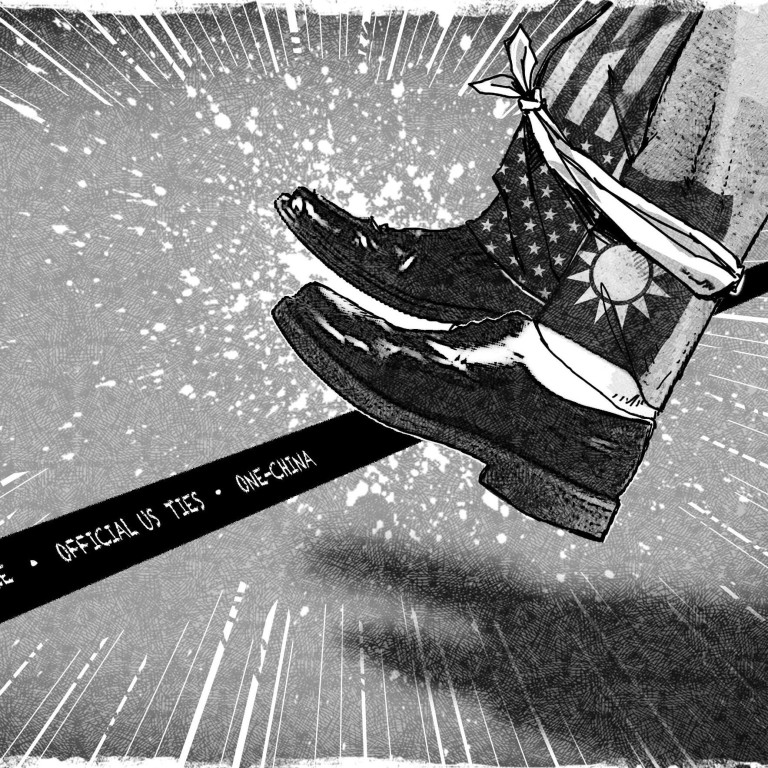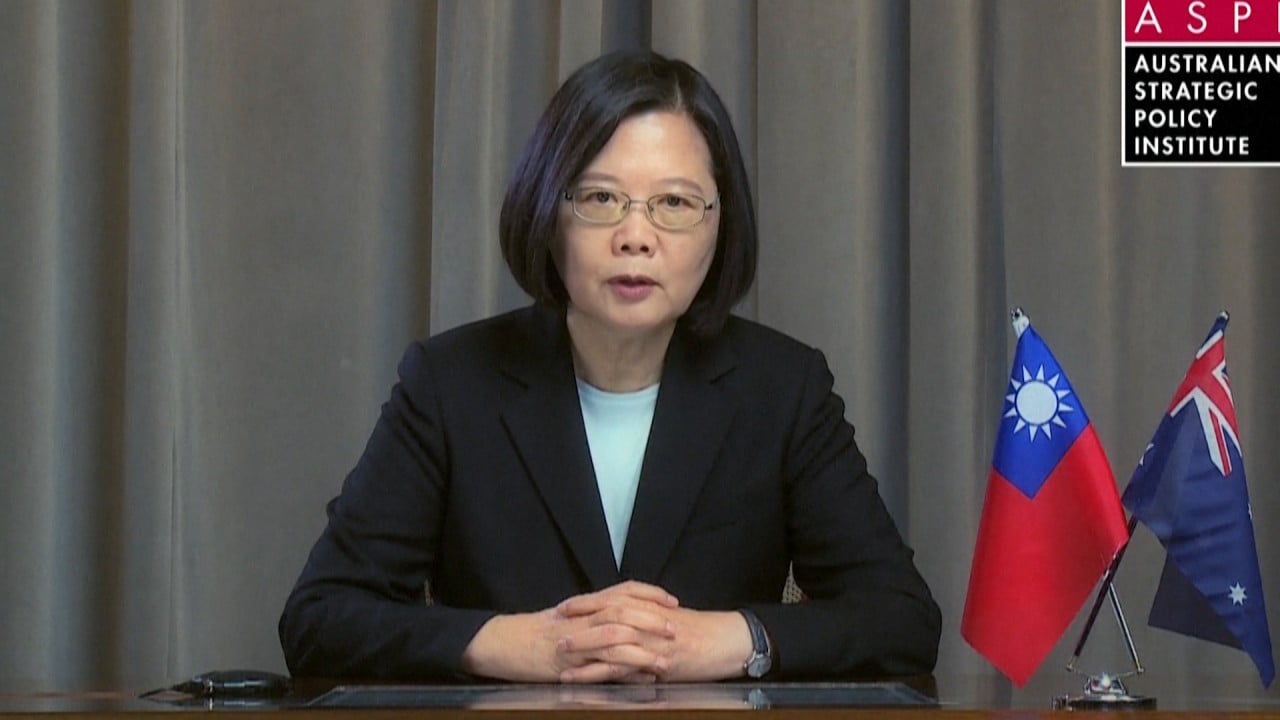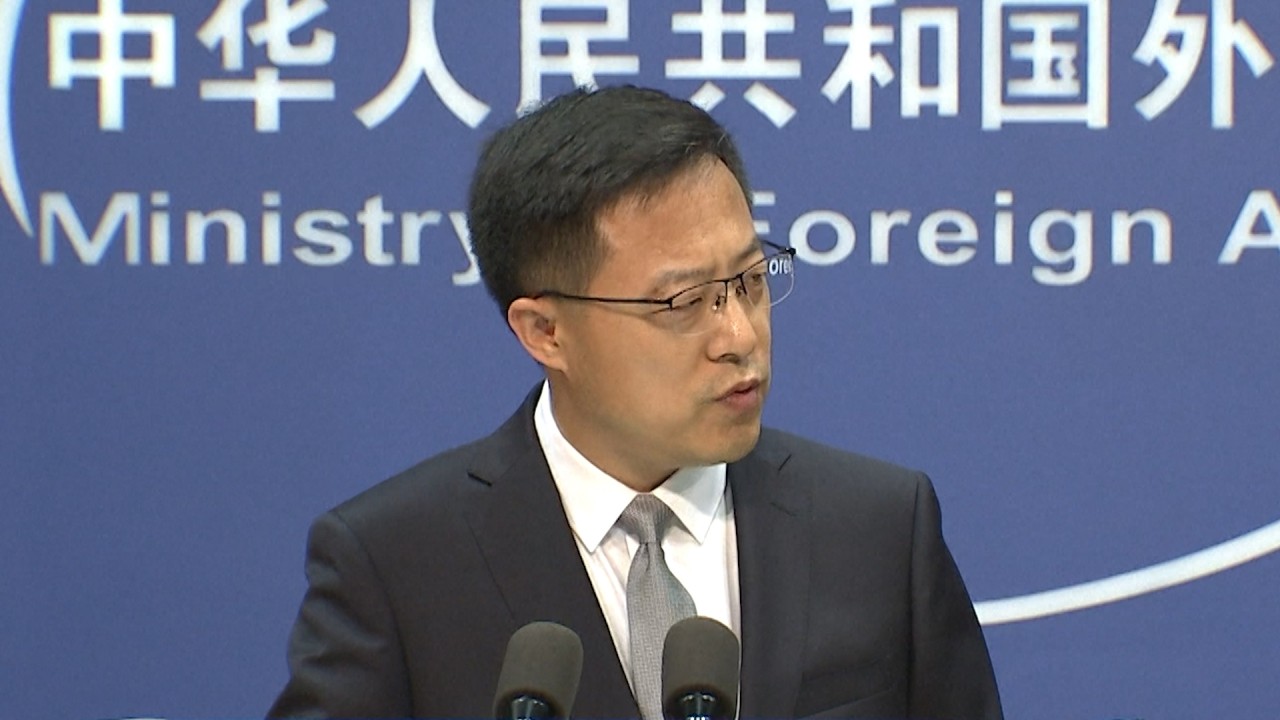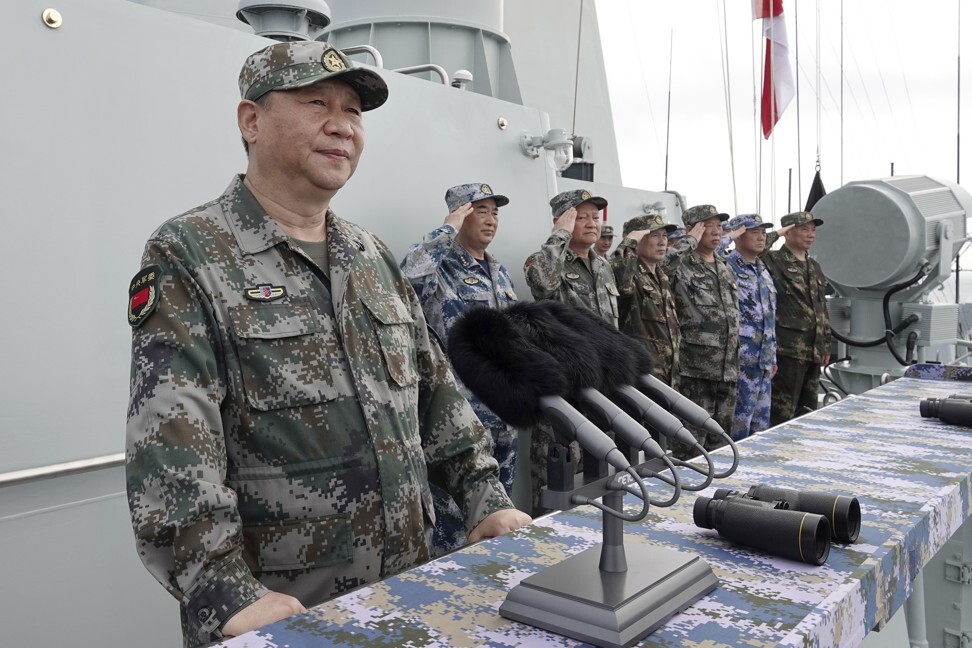
US presidential election: China, Donald Trump and red lines on Taiwan
- The Trump administration has shown increasing support for Taiwan in the race for the White House, actions that Beijing has branded as provocations
- While the prospect of armed conflict is not high, the possibility of ‘peaceful reunification’ is waning, analysts say
As voters in the United States prepare for the presidential election in November, the South China Morning Post will explore the potential ramifications for China. In the seventh part of the series, Kinling Lo examines how the race for the White House is affecting Beijing’s ambition to bring Taiwan back in the mainland fold.
For Beijing, there is one very clear red line on Taiwan.
If the self-ruled island moves towards independence, Beijing has said that it would be justified in “reunifying” Taiwan with the mainland by force, a position it spelt out 15 years ago in its Anti-Secession Law.
In Beijing, the island’s sovereignty is a “core interest” and priority issue – more important than any other matters.
Despite dramatic lows and opposing stands in their relationship, both sides of the Taiwan Strait have so far managed to avoid crossing that line and engaging in a direct confrontation.
Beijing has branded the actions “US provocations” and promised to defend its claim on the island.
Some mainland Chinese observers say that while the line on Taiwan has not yet been crossed it is already underfoot.
Since the Kuomintang government fled to Taiwan in the aftermath of the Chinese civil war, Beijing has viewed the island as a breakaway province to be brought back into the mainland fold.
While never ruling out the use of force, Beijing’s preference has been for that reunification to occur through “peaceful means”.

00:39
Taiwan on the ‘frontlines of freedom and democracy’ after Hong Kong, Tsai Ing-wen says
At the same time Beijing has been embroiled in various confrontations with Washington on issues ranging from technology to trade, human rights and the South China Sea.
US President Donald Trump has made his toughened approach against China a pillar of his campaigning for re-election on November 3, and as part of that equation, Washington has been more openly supportive of Taiwan.
That was apparent in August, when the US Department of State’s top official for Asia, David Stilwell, said Washington needed to make “adjustments” to its policies towards Taiwan because of the “increasing threat posed by Beijing to peace and stability in the region”.
On August 31, after Washington declassified documents revealing US commitments on Taiwan’s security, Stilwell said the US would “never” pressure Taiwan to negotiate with Beijing over sovereignty issues, recognised no expiration on US arms sales to Taipei and had not agreed to renegotiate the 1979 Taiwan Relations Act governing US-Taiwan relations.
US, Taiwan discussing visit by senior official Keith Krach for trade talks
Also last month, Washington sent Secretary of Health and Human Services Alex Azar to the island for the highest-level meeting between the two governments since 1979 when the US switched diplomatic recognition from Taipei to Beijing.
Washington has also made other moves to improve ties with Taiwan in recent months. On the economic front, Taiwan Semiconductor Manufacturing announced in May that it would build a US$12 billion chip manufacturing plant in Arizona.
And in late August Taiwan expressed strong support for US-backed efforts to limit the mainland’s role in global 5G telecommunications networks.
In addition, the US has finalised the sale of more F-16 fighter jets to Taiwan, and expressed strong support for Taiwan to be represented at the World Health Organisation, an international body that requires statehood for membership.

01:03
China urges US to end F-16 jet sales and military contact with Taiwan
Beijing’s response has been to mount intensive military drills in the Taiwan Strait and escalate its threats against the self-ruled island.
Mainland tabloid Global Times said the last time the risk of military conflict in the strait was this great was in 1996, when Beijing launched a series of missile tests in response to late Taiwanese president Lee Teng-hui’s visit to the US.
Yang Lixian, a research fellow at the Research Centre on Cross-Strait Relations in Beijing, said that while “Washington and Taiwan have not really crossed Beijing’s red line” on Taiwan, they “are stepping on it”.
“[China] is already giving its warnings in full force,” Yang said – warnings that included the poaching of Taiwan‘s diplomatic allies and the increased intensity of military drills surrounding the island.
Shift to ‘strategic clarity’ on Taiwan a further risk to US-China relations
He said the US election was a driving force behind Washington’s actions on Taiwan but Beijing would likely keep up its pressure on Taiwan regardless of who was the next US president.
“Trump is not doing well in the polls and he has not handled many domestic issues well, including the outbreak of the coronavirus and his immigration policies ... He is only trying to stir up tension in the Taiwan Strait for Americans to believe they need a hardline president like himself to be tough on China as an opponent,” Yang said.
He said he was not optimistic about the likelihood of peaceful unification, but that the risk of a war was not great as Beijing was likely to stay restrained in the face of Washington’s provocations, holding off on the use of force unless it deemed that the red line had been crossed.

Li Zhenguang, a professor at Beijing Union University‘s Institute of Taiwan Studies, agreed that the chance of conflict was not especially high.
“I feel that the US support for Taiwan has already peaked and it would have to pass a political tipping point if the US wanted to go any further,” Li said.
Ni Lexiong, a military expert at Shanghai University of Political Science and Law, also agreed that the risks of war at the Taiwan Strait remained manageable, but this was only because Beijing had not achieved military superiority over the US.
“If the United States was out of the way, Taiwan would have long returned to China’s fold and there would be no question about it,” Ni said.
US presidential election: Will strategic ambiguity on Taiwan be restored?
“If we fight a war with the US, we will make sure that we have absolute superiority and up to now we have not done so. So isn’t it obvious?”
He said there was also a political reason that Beijing’s plans for reunification were independent of Washington.
“Even when China-US relations are good, it is a bipartisan consensus from the US that they will never agree to a military move [by Beijing] on Taiwan no matter who becomes the US president, so [the presidency] is not a determining factor at all,” Ni said.
“Both China and the US don’t want to fight a war – if a nuclear war is triggered, no one can guarantee a win.”
However, Ni also said Beijing recognised that “peaceful unification” was becoming increasingly out of reach.
“The conditions [for peaceful reunification] don’t exist right now. Even if [Taiwan’s opposition] Kuomintang is back in power again, it does not seem likely they would be able to bring Taiwan to Beijing’s peaceful model of unification,” Ni said.
The point was underscored in a poll last month by Taiwan’s Mainland Affairs Council. Of the more than 1,000 Taiwanese people surveyed by the council, 88 per cent said they were against Beijing’s proposed model of “one country, two systems” of governance for the island.
Yang said Beijing would continue its pressure on Taiwan and hope more Taiwanese would eventually come to accept the model, which remained the best solution for “peaceful reunification”.
“I don’t believe that Taiwan can go against the current of the times,” he said. “If they don’t reunite with us and they don’t declare independence, where are they heading?”
Additional reporting by Sarah Zheng
The other reports in the US election series can be found here.











